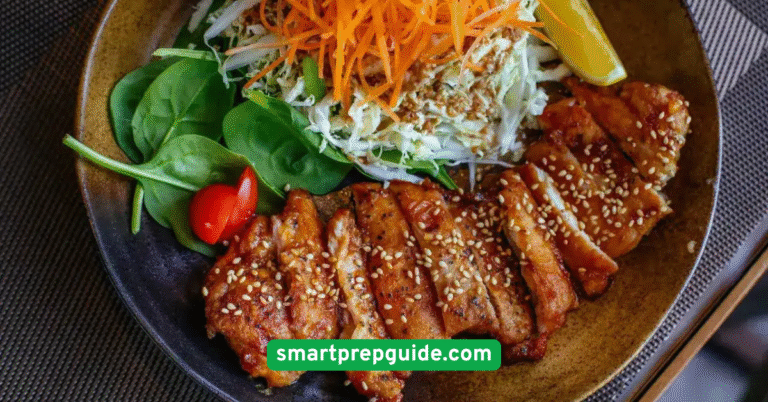15 Smart Meal Prep Ideas for Beginners (2025 Guide)
1. Start with a Simple Weekly Menu
Creating a weekly menu is the foundation of successful meal prepping. As a beginner, it’s easy to feel pressured to prep every meal for every day. But trust me, you don’t have to! Start small by choosing 3 to 4 recipes that you love or want to try.Aim for meals that share ingredients, like chicken and rice bowls or veggie stir-fries. This saves time during prep and money at the grocery store. Think about what your week looks like — busy days might need grab-and-go options, while weekends could allow for a hot, sit-down meal.Planning ahead also prevents food waste. When you know exactly what you’re cooking, you’re less likely to toss out forgotten spinach or that mystery item in the back of the fridge. A simple food planner or notes app can be your best friend here.Lastly, keep things flexible. Maybe leave one night open for leftovers or a spontaneous dinner out. Meal prep is meant to make your life easier, not stricter.
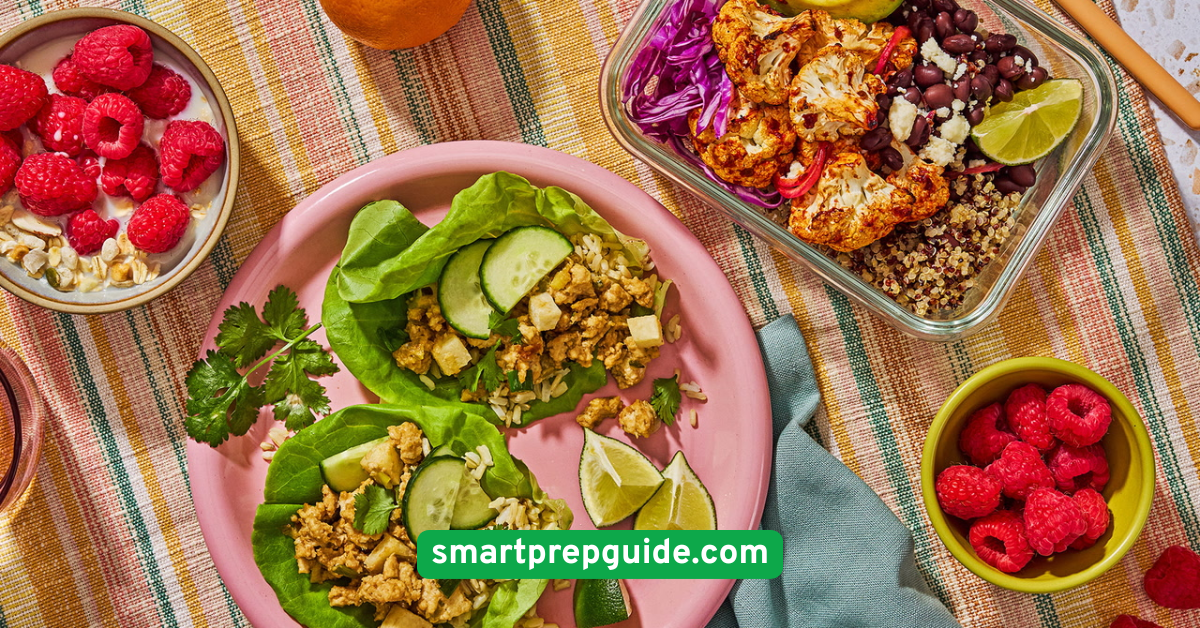
2. Stick to a Grocery List
Once your menu is ready, it’s time to build a grocery list. This is where your budget and nutrition meet in harmony. A well-organized grocery list saves you from wandering aimlessly through aisles and buying things you don’t need.Group items by category—produce, protein, pantry staples—to make shopping faster and more efficient. Include only what you need for your meal plan. Avoid “just-in-case” purchases unless they’re versatile pantry staples like olive oil or canned beans.Having a list also supports your health goals. It keeps you focused and helps you avoid impulse purchases, like sugary snacks or unnecessary frozen meals. Plus, it makes shopping less stressful. In and out. Done!
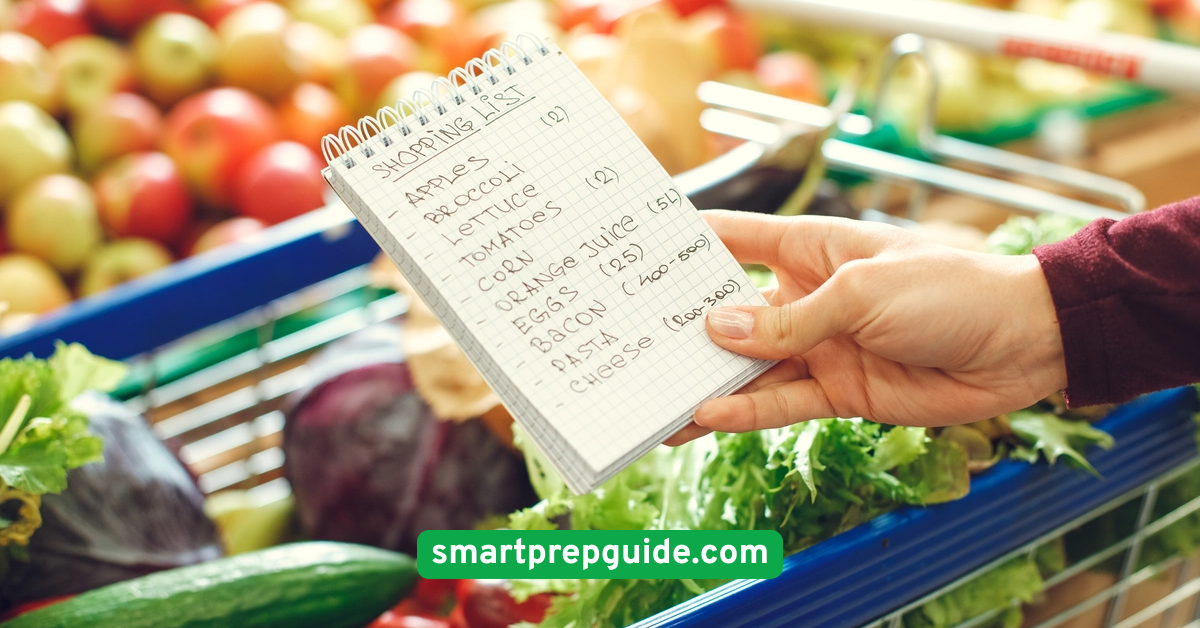
3. Batch Cook Your Grains
Cooking a large batch of grains is a classic meal prep hack. Brown rice, quinoa, couscous, or even farro — these grains are healthy, filling, and super versatile.Prepare them in bulk and portion them into containers. You can mix them with different proteins and veggies throughout the week to keep things interesting. One day it’s a chicken rice bowl, the next it’s a veggie stir-fry or even a grain salad with vinaigrette.Grains store well in the fridge for up to 4-5 days, and you can freeze extras too. Just add a splash of water before reheating to keep them from drying out. Batch cooking grains saves time and helps you build nutritious, balanced meals in minutes.
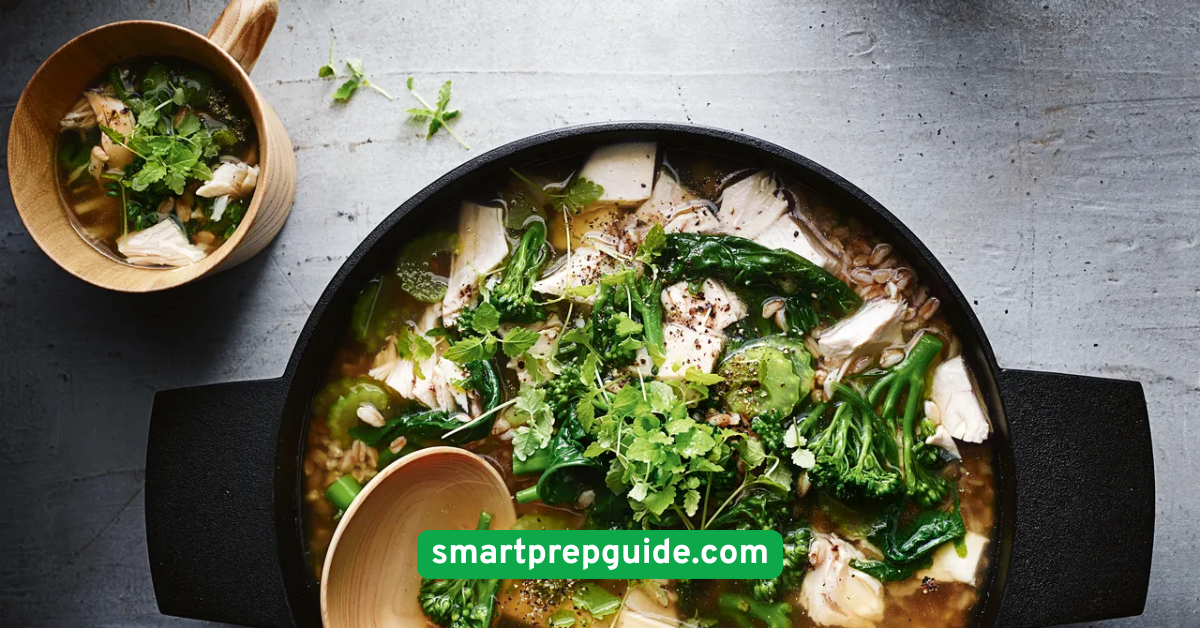
4. Use Pre-Chopped or Frozen Veggies
Time-saving meals often start with the right ingredients — and nothing beats the convenience of pre-chopped or frozen vegetables. They’re a lifesaver on busy prep days!Frozen veggies retain their nutrients and are usually more affordable than fresh. Use them for stir-fries, soups, stews, or quick sautés. No washing, peeling, or chopping required.Pre-chopped fresh veggies are another great option. They’re slightly more expensive but can drastically reduce your prep time. Keep bags of chopped onions, bell peppers, or shredded carrots on hand to add flavor and fiber without fuss.Remember: convenience doesn’t mean compromise. These shortcuts help you stick to healthy eating habits without spending hours in the kitchen.
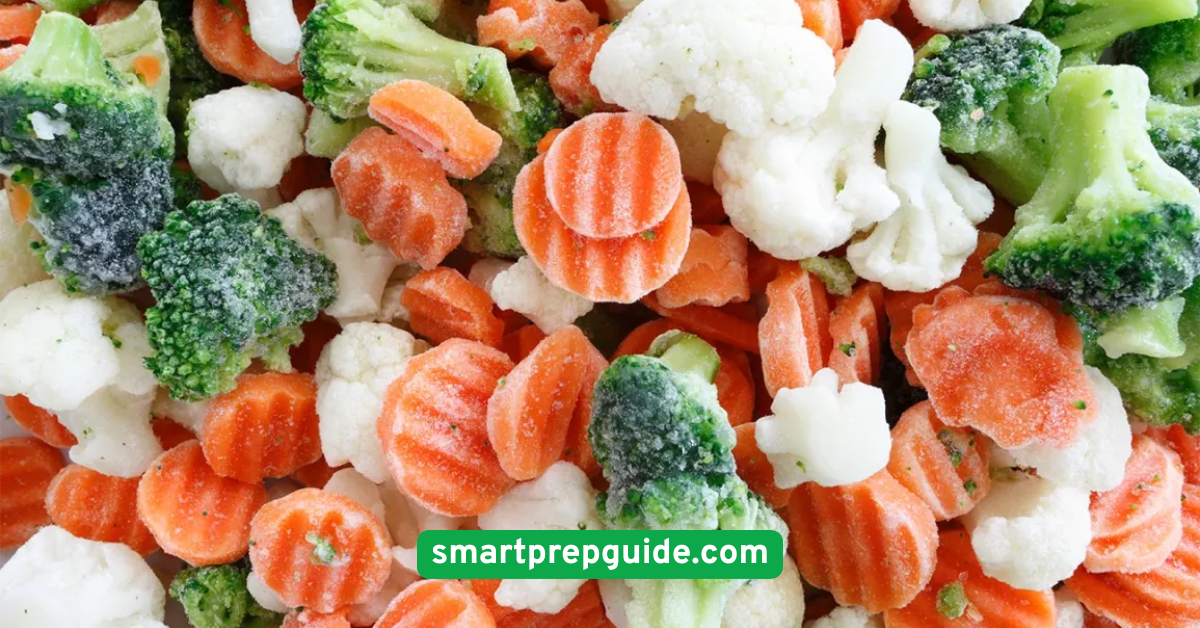
5. Make-Ahead Breakfast Jars
Breakfast can be the hardest meal to get right when mornings are rushed. But prepping breakfast jars ahead of time is a total game-changer.Try overnight oats layered with fruit, seeds, and a splash of milk. Or go for Greek yogurt parfaits with granola, berries, and a drizzle of honey. These make-ahead meals are nutritious, customizable, and keep well for up to 3–4 days.Store them in mason jars or any reusable containers, and you’ll have a quick, satisfying meal ready to grab and go. No excuses for skipping breakfast anymore!
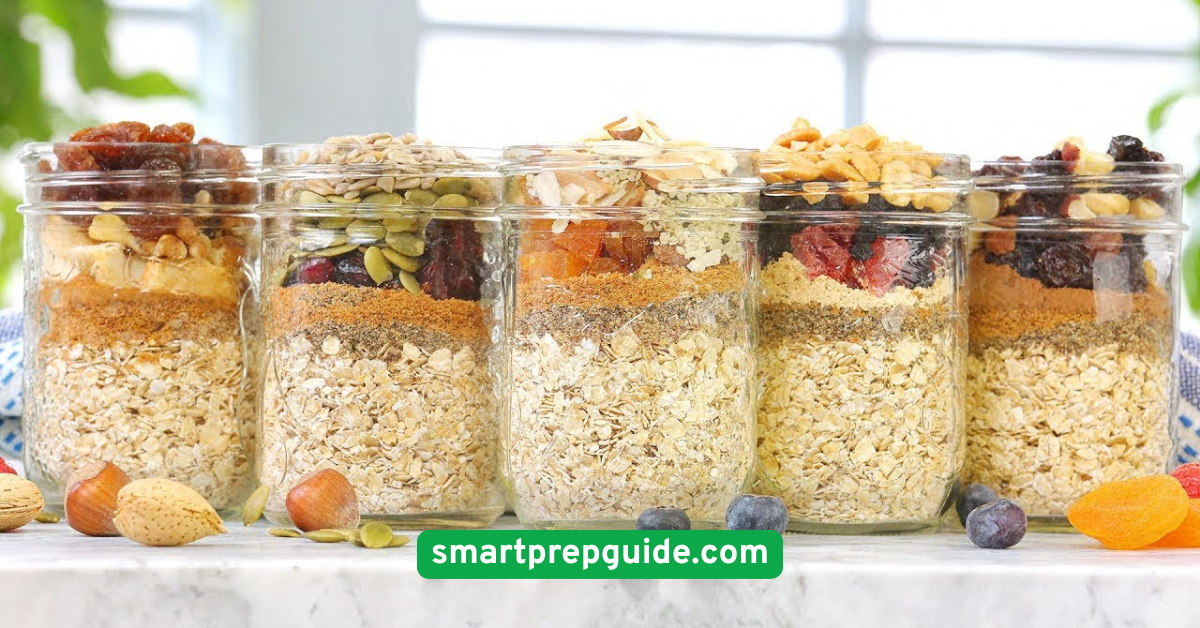
6. Prep Sheet Pan Dinners
Sheet pan meals are the MVP of meal prep. Toss your favorite protein—like chicken breasts, salmon, or tofu—with chopped vegetables, olive oil, and your favorite seasonings, and roast everything on one pan.They’re easy to make in large batches and clean-up is minimal. Plus, roasting brings out the natural sweetness in veggies like carrots, bell peppers, and Brussels sprouts.Portion the cooked meal into containers, and just like that, you’ve got several dinners done in under an hour. Change up the spices to keep flavors fresh throughout the week.
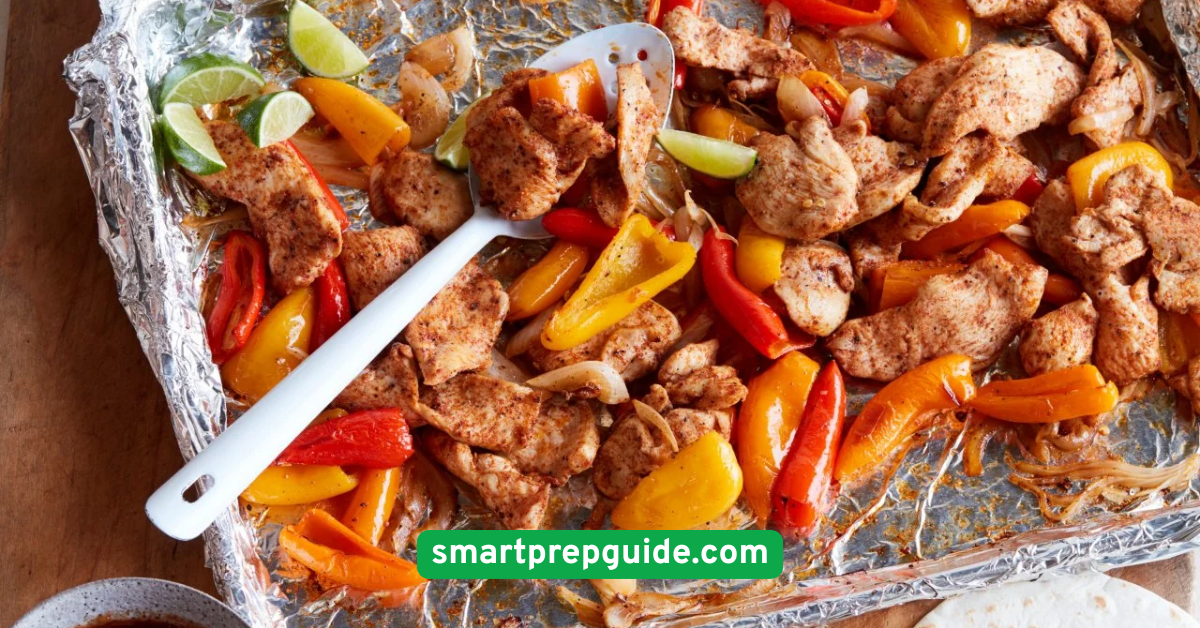
7. Invest in Reusable Containers
Having the right storage is key to staying organized. Invest in a few sets of reusable containers that are microwave-safe, leakproof, and easy to stack.Glass containers are eco-friendly and keep food fresh longer, while BPA-free plastic ones are lightweight and travel-friendly. Choose a variety of sizes, including compartmentalized options for balanced meals.Label your containers with prep dates using masking tape or erasable markers to avoid mystery leftovers. This simple habit keeps your fridge neat and your meals safe.
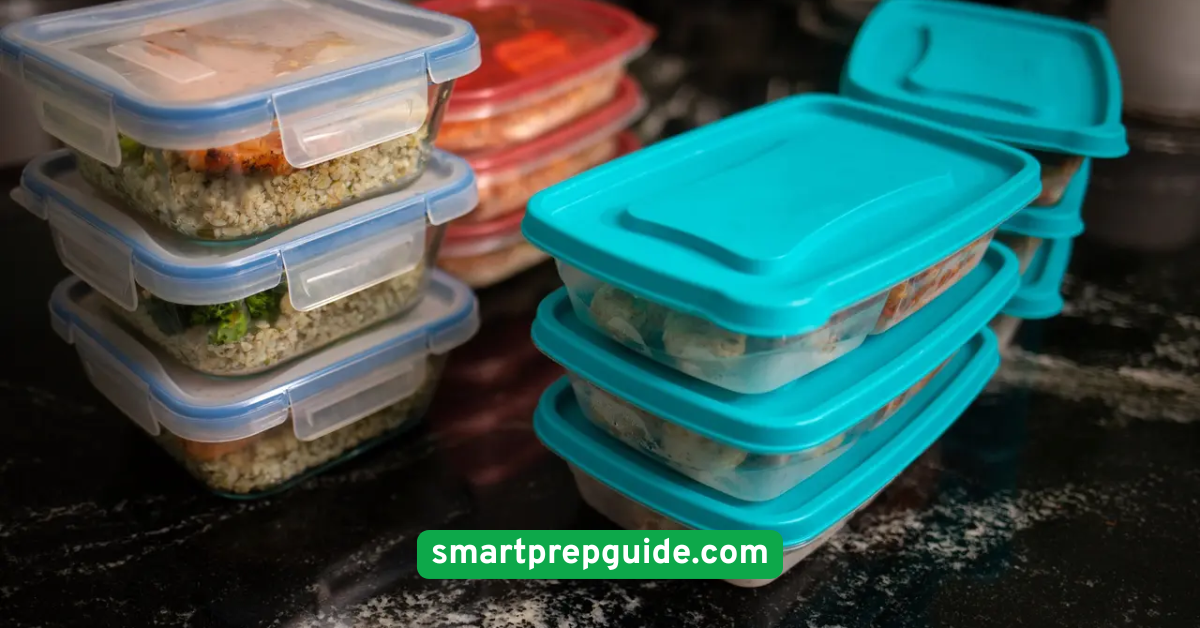
8. Cook Once, Eat Twice
Why cook every day when you can double your recipe and get two meals out of it? This method is perfect for dishes like chili, lasagna, or casseroles.Make one batch for the week and freeze the second portion. On busy nights, all you need to do is reheat. This reduces stress and guarantees you’ll always have a backup meal ready.Eating leftovers doesn’t have to be boring either. Add fresh toppings, serve with different sides, or repurpose into wraps or salads to mix it up.

9. Portion Snacks Ahead of Time
Snacks can either keep you on track or totally derail your meal prep efforts. The solution? Portion them in advance.Divide nuts, crackers, chopped veggies, or hummus into individual servings. Store in small containers or zip bags for easy access. This prevents mindless munching and helps with portion control.It’s also perfect for packing lunches or having healthy options ready for post-work or school cravings. Smart snacking starts with good prep!
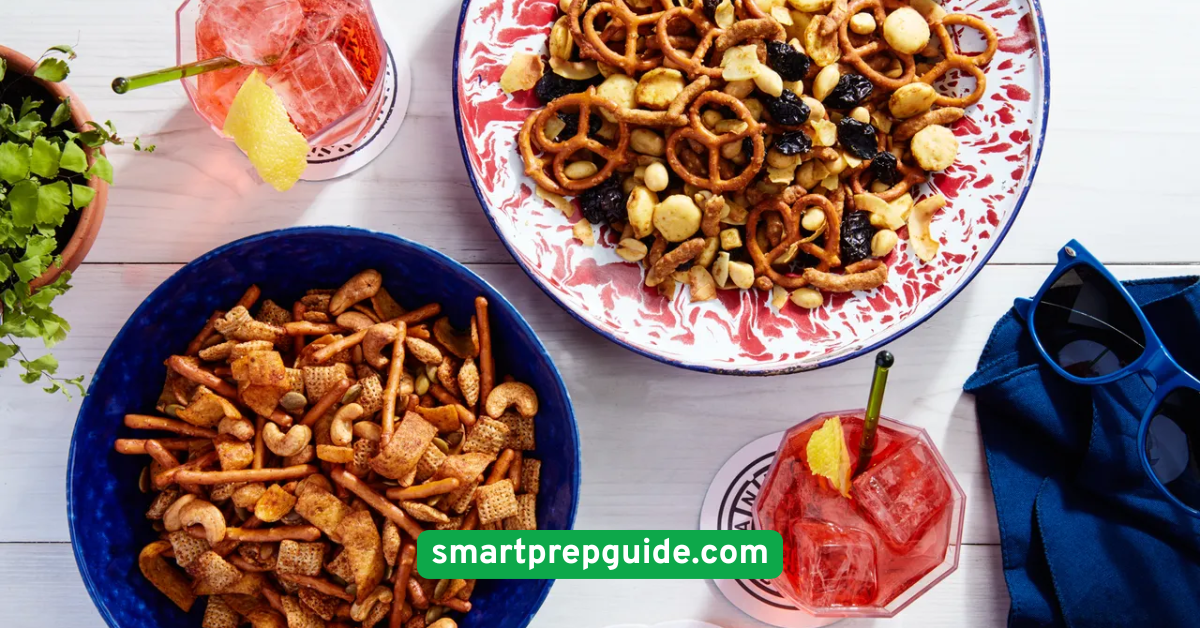
10. Prepare Proteins in Bulk
Cooking your proteins in batches makes weekday meals almost effortless. Grill or roast chicken, bake tofu, or cook beans ahead of time.Store them in separate containers and use them throughout the week. Combine them with different grains, sauces, or veggies to keep your meals diverse.Season proteins differently for each batch. A lemon herb chicken one day and a spicy BBQ version the next? Yes, please. Your taste buds will thank you.
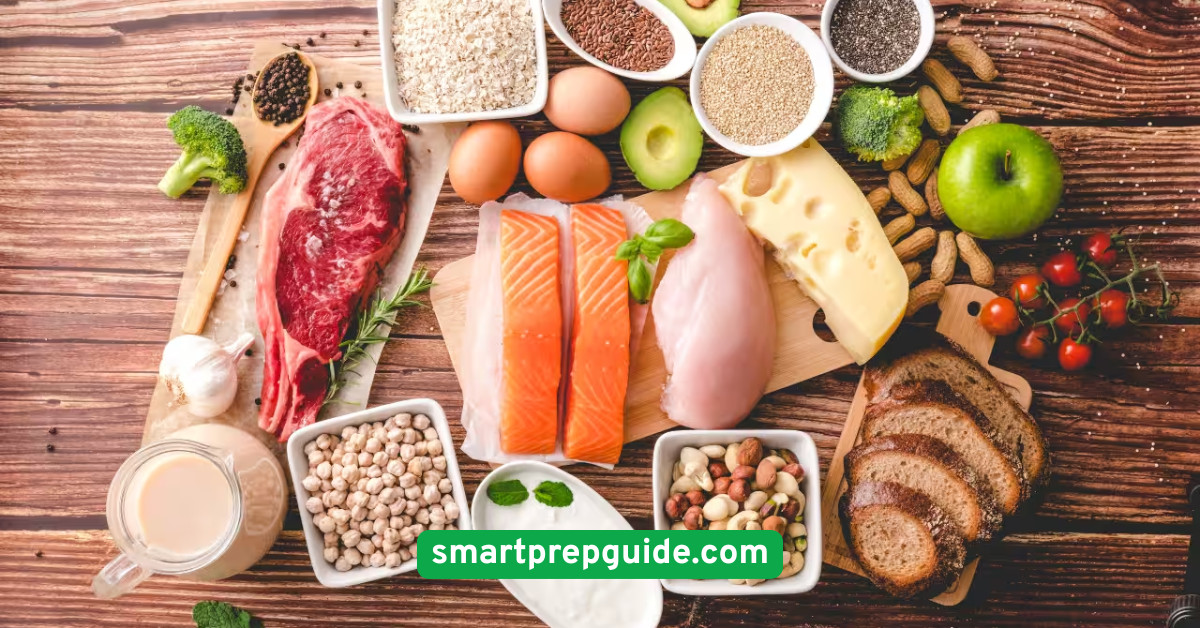
11. Use Theme Days for Meal Planning
Theme days add fun and structure to your week. Think Taco Tuesday, Stir-Fry Saturday, or Meatless Monday. They simplify meal decisions and add excitement to your routine.Pick a few go-to recipes under each theme and rotate them weekly. Over time, you’ll build a collection of favorite dishes that you can prep quickly and easily.It’s also a great way to involve the family or roommates—let them choose the theme and help with prep. Themed meals = less planning, more fun!
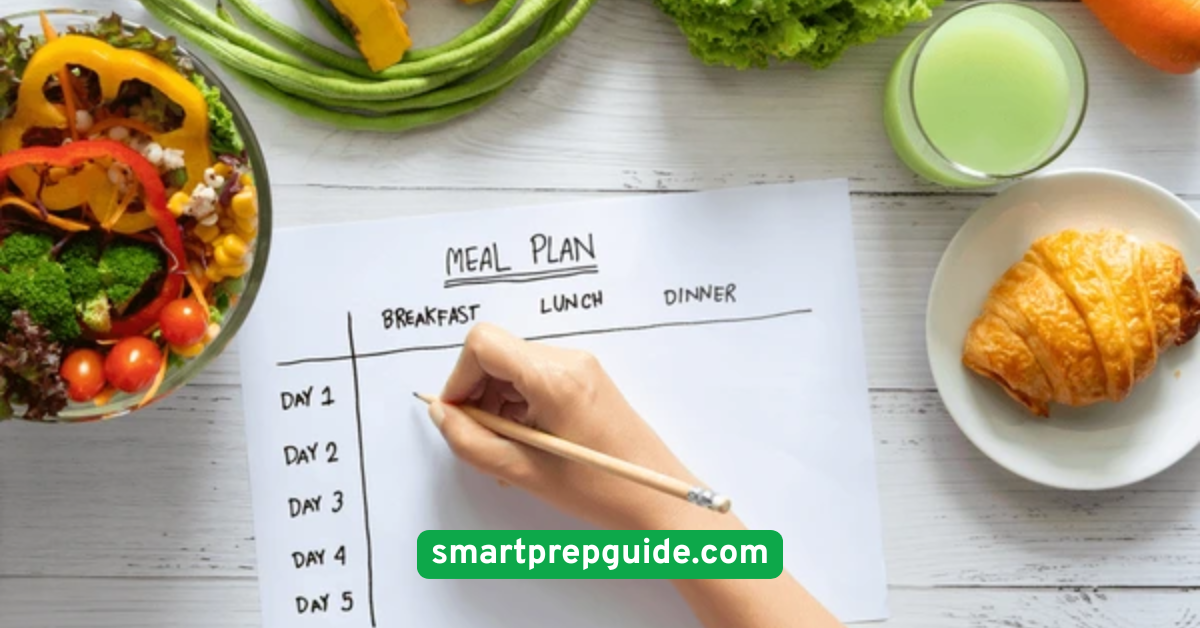
12. Try Mason Jar Salads
Mason jar salads are not only convenient—they’re downright beautiful. Start with the dressing at the bottom, then add hearty veggies, grains, protein, and finally greens on top. This layering keeps everything crisp.When you’re ready to eat, just shake the jar and dig in. These salads can be prepped 3–5 days ahead and stored in the fridge.Experiment with different flavor combos—Southwest black bean salad, Greek quinoa salad, or an Asian sesame noodle version. The possibilities are endless.
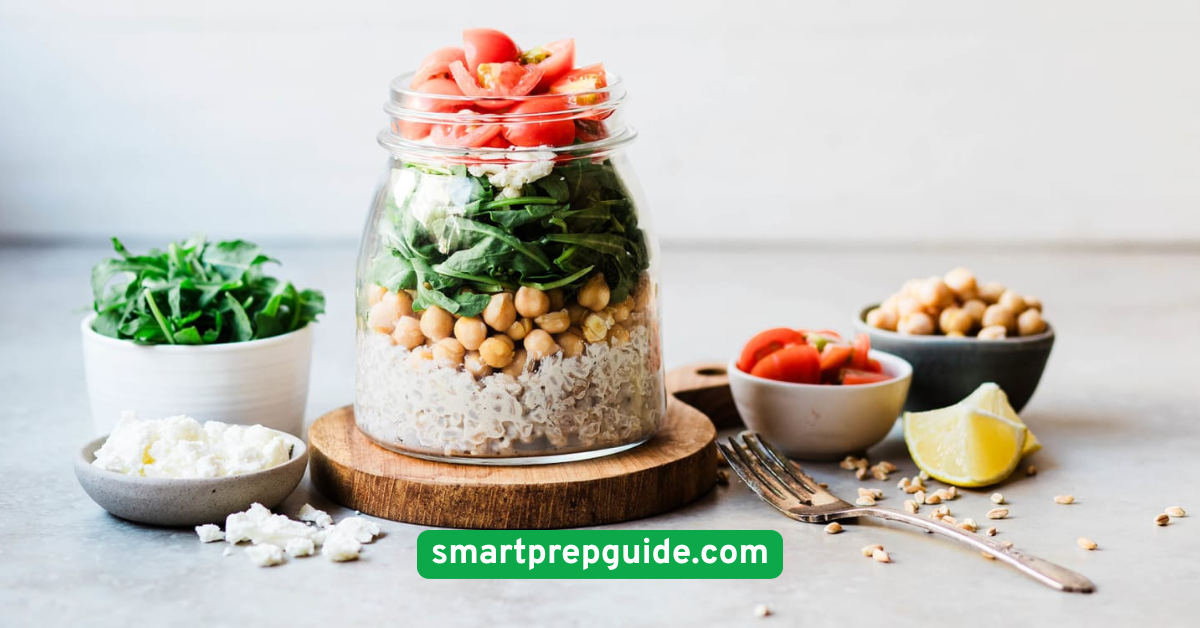
13. Label Everything
Keeping your fridge organized helps you stay on top of your meals. Label containers with what’s inside and when it was made.Use simple masking tape or pre-made fridge labels. This helps you avoid spoiled food and makes it easier to grab meals on the go.It may seem like a small step, but trust us—it brings serious order to your meal prep routine and reduces waste.
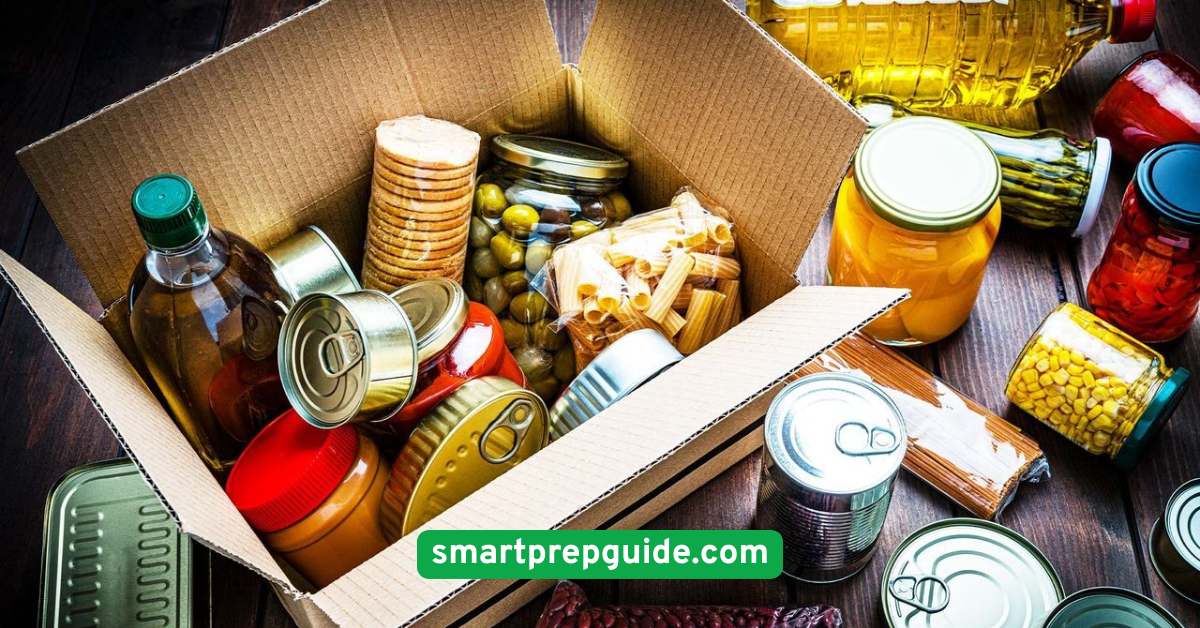
14. Freeze Individual Portions
Sometimes you cook more than you can eat. Don’t waste it—freeze it! Soups, stews, cooked grains, and even pasta dishes freeze beautifully.Use silicone molds, ice cube trays, or small containers to freeze single servings. Label and date them for easy tracking.These frozen meals come in handy when life gets hectic. Just reheat and enjoy a home-cooked meal without starting from scratch.
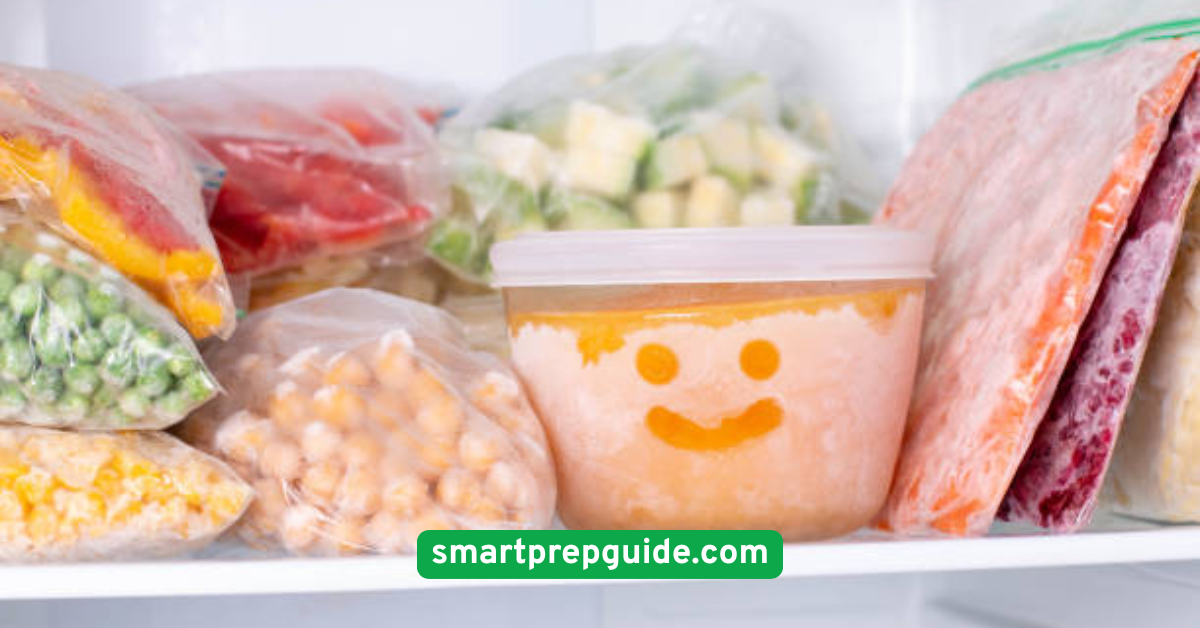
15. Keep a Prep Day Routine
Consistency is key to long-term success. Pick a prep day that works for your schedule—Sunday afternoons are popular, but choose what suits your lifestyle.Set aside 1–2 hours for chopping, cooking, and storing. Play music or a podcast to make it enjoyable. Over time, this weekly habit will feel second nature.When you stick to a prep routine, you’ll spend less time each day thinking about food, and more time enjoying it. It’s meal prepping made simple.
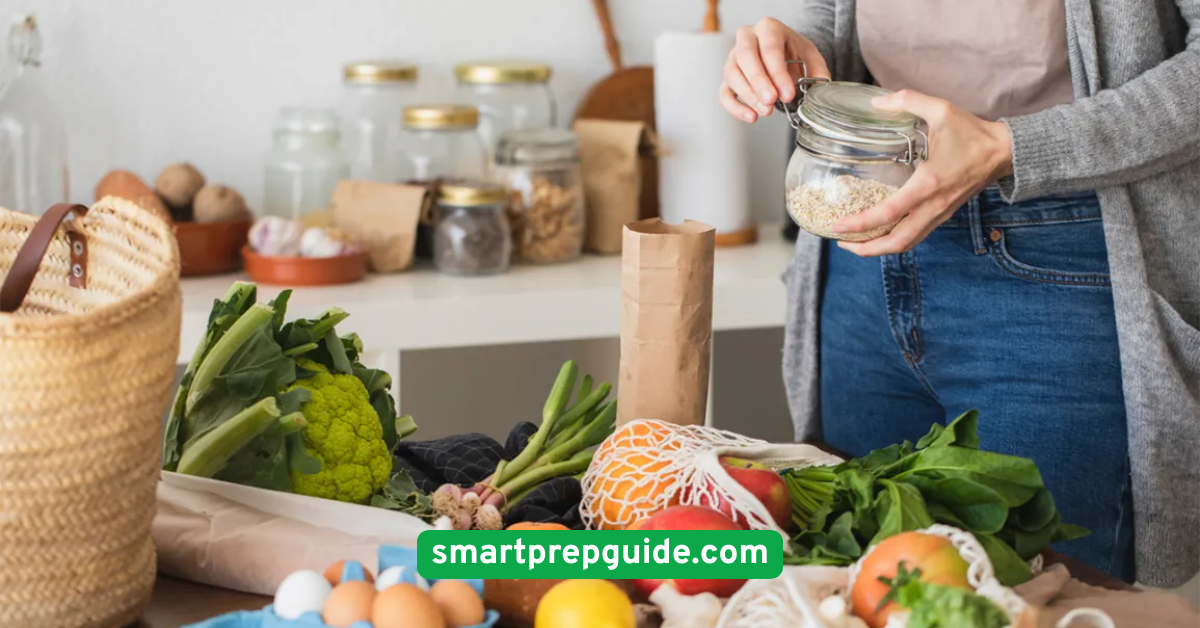
Conclusion
Meal prepping doesn’t have to be complicated or overwhelming. With these 15 smart meal prep ideas, even beginners can set themselves up for a week of healthy, budget-conscious, and stress-free eating. From simple breakfasts to organized fridge storage, each tip is designed to make your life easier and your meals more intentional. Start small, stay consistent, and adjust as you go. Soon, meal prepping will become less of a task and more of a lifestyle. So grab those containers, prep that grain bowl, and enjoy the peace of mind that comes with knowing your meals are ready and waiting. You’ve got this!





